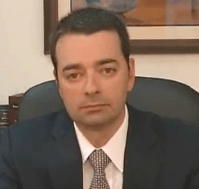
Phillip "Not Paid by AT&T" Dampier
When asked if the merger of AT&T and T-Mobile will limit customer choice, NAACP’s local executive director Stanley Miller told a Cleveland, Ohio television station, “I don’t think that’s an issue in today’s environment; I think the companies are smarter today and they will make people understand and give them the beneficial services that they’ll need.”
The civil rights group had nothing to say about how much AT&T will charge for these “beneficial services.”
At least WEWS-TV in Cleveland is bothering to ask the question. Most of America’s television news has either ignored the enormous merger on offer from AT&T and T-Mobile, or didn’t wade much further beyond AT&T’s press release about the “benefits” the merger will bring. Unfortunately, the television station never bothered to alert viewers to the fact the civil rights group receives substantial financial support from AT&T.
Miller’s performance trying to tout his parent organization’s unqualified support for the merger sent a very clear message to anyone watching NewsChannel 5 — he doesn’t really understand what he is talking about.
On the issue of expanding wireless service into rural Ohio, Miller was left tongue-twisting his way into advocating a monopoly because they’ll be best equipped to get service to those who need it. That’s a fascinating prospect — a monopoly spending money expanding service where it is unprofitable to provide. That’s the reason companies like AT&T have ignored rural America, and will continue to do so — merger or not.

Miller (WEWS-TV)
In fact, AT&T’s claim that it needs the network of T-Mobile to stop the persistent problems of dropped calls and slow data service doesn’t make much sense either. Verizon, AT&T’s closest competitor, doesn’t seem to be suffering those problems, perhaps because it has made investments in upgrades AT&T has avoided.
In California, consumer advocate Jon Fox was taking an equally skeptical look at AT&T’s claims on behalf of CalPIRG, the California Public Interest Research Group. Fox noted AT&T’s promotion of the merger in his state came at invitation-only cheerleading sessions run by company officials:
Earlier this month, AT&T California President Ken McNeely explained to an invitation-only audience that the proposed merger with T-Mobile will create new jobs, help communities and improve wireless phone service. AT&T preferred not to take questions from the general public on how that vision fits with AT&T’s history of consolidation, layoffs and aggressive market behavior.
Nearly 30 years after regulators broke up AT&T’s unprecedented control over the U.S. wired phone market, consumers are asked to believe that this time things will be different. This notion defies both experience and common sense. Unless significant market regulation is put into place that encourages a competitive wireless arena to flourish, this proposed merger will be bad for consumers, innovation and economic growth.
Fox notes the wireless marketplace in the United States is hardly a paragon of competitiveness today. If the merger were approved, 76 percent of Americans would receive wireless service from two providers — AT&T and Verizon. Fox observed America’s next-most-hated conglomerate — the oil and gas industry — wishes it could have that sort of market power. The top two oil companies in the U.S. have a combined market share of only 24 percent. America, he notes, wouldn’t tolerate that kind of consolidation in the gasoline market, so why should we tolerate it in the mobile market?

The California Public Interest Research Group
Fox advocates more competition, not less. He suggests the government force AT&T and Verizon to open their cellular networks to independent third party competitors at fair prices, and let everyone compete. That could germinate competition that would end the chorus of rate increases from the largest players and allow for innovative pricing plans that don’t force customers into the nearly identical service plans AT&T and Verizon want to force you to accept. T-Mobile already provides the most innovative pricing in the wireless marketplace, and AT&T is about to swallow that innovation whole.
What ultimately happens to a well-dwarfed Sprint remains an open question, but one many on Wall Street have already answered, suspecting America’s third largest carrier simply won’t be in a position to compete. Fox thinks the situation is dire when two companies will have a virtual lock on wireless data services Americans increasingly depend on.
That’s not the view of the NAACP, of course. But then the NAACP is hardly an independent observer, being the recipient of a considerable amount of money and executive talent from AT&T. That counts for a whole lot more than the rank and file members of the organization, who will be paying the increased prices AT&T has in store for everyone.
[flv width=”360″ height=”290″]http://www.phillipdampier.com/video/WEWS Cleveland ATT T-Mobile Merger 7-14-11.mp4[/flv]
WEWS-TV in Cleveland investigates the ramifications of a merger between AT&T and T-Mobile. More than 94% of all Ohioans filing comments with FCC oppose the merger, but groups like the NAACP support it. NewsCenter 5 wanted to find out why. (3 minutes)
 Although T-Mobile is pitching these plans as delivering “unlimited data,” in reality their speed throttle kicks in on some of them after 2GB of usage per month. While customers will not experience bill shock from overlimit fees common with AT&T and Verizon Wireless, they won’t actually get an unlimited data experience like the one Sprint still delivers on its unlimited data plans.
Although T-Mobile is pitching these plans as delivering “unlimited data,” in reality their speed throttle kicks in on some of them after 2GB of usage per month. While customers will not experience bill shock from overlimit fees common with AT&T and Verizon Wireless, they won’t actually get an unlimited data experience like the one Sprint still delivers on its unlimited data plans.

 Subscribe
Subscribe





